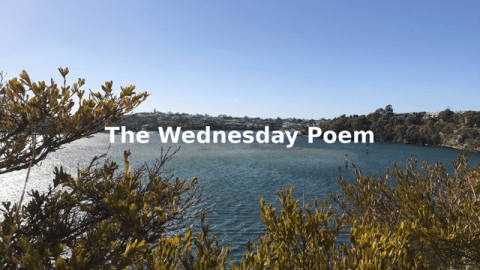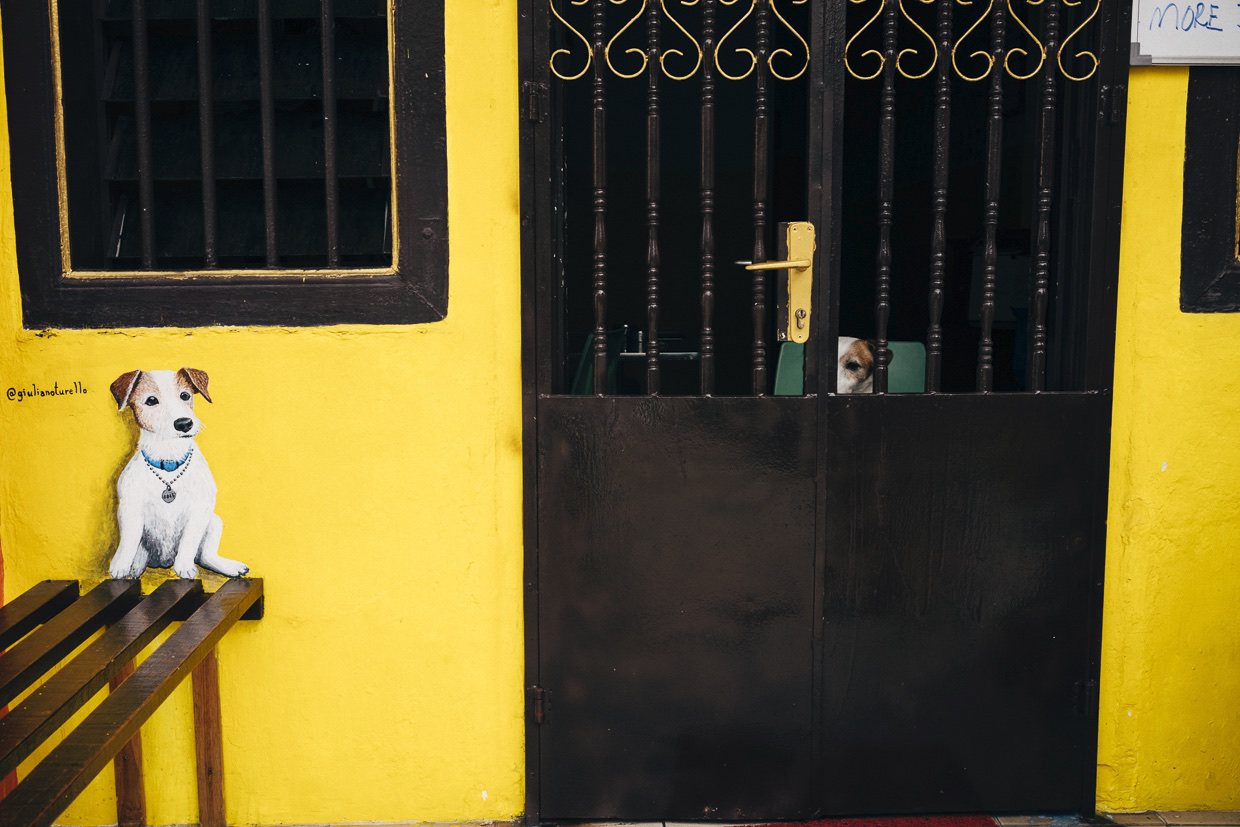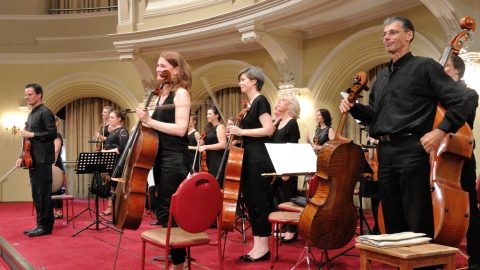Thanks to all Shipping News readers who have journey with me as we retraced the voyage of the Hougoumont, the last convict ship to Australia which arrived in Fremantle on 10 January 1868.
I trust you’ve come to know and appreciate some of the 62 Irish Fenian political prisoners who made this voyage, part of a total of 280 convicts.
Make sure you visit the Exhibition of Transportation on show in the public gallery at the Fremantle Prison from 9 January 2018 and continues until March 2019. As well as a clear insight into transportation, locals and visitors to Fremantle will have a rare opportunity to view the very book I’ve been quoting from in these logs – the original manuscript ‘The Wild Goose’ written by the Fenians on board the Hougoumont.
(Thanks to the Mitchell Library, State Library of NSW and a generous WA benefactor)
Approaching Fremantle
As the Hougoumont approaches Fremantle, like the editors of the Wild Goose, I have also come to the end of my shipping logs. Thanks to all the readers who have followed the story, I hope these inspiring men have helped you to understand a little more about historical sea travel, the plight of convicts and all who are forced to leave their country as well as the cause of the Fenians.
Let’s look at what John Flood had to say in his final editorial of The Wild Goose.
Adeiu
With feeling of great regret, I come, the last of the ‘Wild Geese’, to bid you adieu. Week by week, one of our flock has tracked you across the ocean, and flown to you, if not welcome visitors, at least with an earnest wish to be both agreeable and welcome; though few our number, our visits have come to a premature end in consequence of the swift approach of the termination of your voyage.
I hope that, if not to all, at least to some, our appearance has been a source of some little pleasure, and that we did not entirely fail in our efforts or our aims. I fain would linger over this adieu – fain would say what my sister ‘Wild Geese’ proposed to themselves the pleasure of saying, (but Wild Geese, like men, propose and God disposes) had the length of your voyage permitted them to make their appearance.
The end of your uneventful but rapid passage quickly approaches and already your hearts are beginning to quicken with anticipation at what may be your future in the new land you are fast nearing. I know not what may be in store for you – Courage, and trust in Providence.
You have in your keeping things that are most precious to the heart of man. Things that no power can wrest from you, no matter whether your position be that of convicts; exiles, or freemen – your own honour – hitherto preserved unsullied; and remember, that the honour of anyone is not a thing belonging to him alone, to be kept bright or stained at pleasure, but that the honour of each is the honour of all – a sacred trust, which it is your duty to keep pure and untarnished.
Follow bravely the path of unswerving uprightness, clearing the thorns from each other’s footsteps, like brothers, always remembering that ‘there is a Providence that shapes all our ends, rough hew them how we may’. You are sadly placed, but I know that your hearts are strong, and that you will not be degraded by the dross with which you may be placed in contact, but that like the better metal, you will come through the fire refined, strengthened, and purified. That with your trust above and your eye fixed on honours’ star, you will not permit yourselves to be dragged down to the level of those beneath you, those with whom necessity may force you in contact, but cannot in association. Use your trials to the end that you may ‘know what a sublime thing it is to suffer and be strong.’ …
You will find the bond of sympathy that binds you all together can give you a pleasure second only to the ties of home. I bear you the prayers of those that are dearest, for your happiness and welfare, mingled with the hope that the time may soon come when they can again wish you a ‘Merry Christmas and a Happy New Year’. Hearts are beating for you, from which time or space cannot separate you. Prove worthy of their interest in you, and for the rest – Courage and trust in God. Adieu.’
Bin Eider (John Flood)
Still at Sea
On the Hougoumont, they faced four days of stormy weather….
By 28 December, the storm which had lasted since Christmas eve was finally over. The ship, which was now sailing at ten knots under full canvas, continued to roll in a heavy swell. It was mild and warm, with a good breeze which then gradually died, and they found themselves once more wallowing in a dead calm, with the sails flapping motionless in the air.
Casey said he was reminded of the story of Socrates and his philosophy, who after being ‘roughly handled by his wife’, and having received the contents of a chamber pot on his head, contented himself by saying, ‘After such claps of thunder, it is natural to expect a shower!’
During the afternoon, the sky gradually clouded over. A few albatross were flying about, but still there was no sign of a breeze. The terrible rolling of the becalmed ship in the heavy ocean swell was most uncomfortable.
Casey’s penetrating observations and ability to reflect on ‘higher matters’ at times like these, never cease to amaze us.
From the Diary of John Sarsfield Casey:
30 December 1867
I cannot but feel impressed with the sublimity of the scene, and raise my heart with astonishment and contemplate the immensity and omnipotence of the Almighty. What can give us poor mortals the idea of immensity, if not the boundless ocean? Here we have been for the past 80 days sailing on its surface, and each day as I mount the ladder and scan the horizon, naught meets my view but sky and water. Oh, immensity! Immensity!
Who would, for a moment, imagine that the calm, blue waters, which one day rise and fall like the gentle heaving of a blushing maiden’s snowy bosom, or during the clear, calm nights of tropical climates, when from the distant vault of heaven, the stars look down upon the tranquil scene, with their pale silvery light, the ocean, giving it the appearance of a lake of molten silver, would ere another sun sets, be lashed in to fury, white with foam and tossing about on its raging surface those huge leviathans, the pride and glory of man! What nobler subject for meditation than the ocean, it raises the mind to the contemplation of Eternity and the Eternal!
The captain and two of the crew of the Hougoumont had been so impressed by the Christmas edition of the ‘Goose’ that the writers were commissioned to reproduce copies for them. The staff of the Wild Goose received some recognition for the extra tasks they had undertaken.
4 January 1868
Cashman, Flood and O’Reilly turned out at 3.45 am and went up on deck at 4.00 am, where they enjoyed a fresh water wash, and witnessed one of the prettiest sunrises they had ever seen. Shortly after (thanks to the generosity of a good friend) they breakfasted on preserved salmon, biscuit and coffee, which they enjoyed immensely, being a most welcome change from convict rations
The long and uncomfortable voyage was nearly over. The sailors were hard at work dragging cable up from the chain locker, placing the anchor at the bows in readiness for dropping immediately.
Thursday 9 January found them sailing at ten knots, in a strong breeze under a clear sky. They were on the lookout for land since 4 am.
Casey takes up the story…
7.45 am: Land ahead! On our lee bow a long low range visible surmounted by a lighthouse, Rottnest Island.
10.00 am: The misty outline of the coast is more defined to the east of the island, the mainland appears low and sandy, the range surmounted by ‘bush’. The Pilot Boat appears in the distance, seven men in her. Fremantle now visible, a few merchant vessels in the roads, prospect cheerless in the extreme.
A sober sadness now assails me at the prospect of being separated from many of my comrades. I look in vain for the emerald green hills clothed with sheep, the waving ear, the broad transparent river meandering through the deep garment of fairest green, and the darkly shadowed mountains in the background, which gladden the sight on nearing the shores of Holy Ireland. There all is grand. Here all is dreary, desolate and cheerless. How many of the stout hearts now beating, are destined to lay their bones in this land? How many will again tread the fair hills of Holy Ireland. Oh, for a dip into the gloomy dark future!
With the dropping of the anchor, the last convict ship arrived in the penal colony of Western Australia. The Fenian prisoners were the last to be taken ashore from the Hougoumont in small boats and brought to ‘The Imperial Convict Establishment’ as Fremantle Prison was called.
Very early on the morning of 10 January they were put on shore in Fremantle, and marched through the town to their destination, the Fremantle Prison.
All Fremantle Shipping News readers are invited to commemorate the 150-year anniversary of this landing
9am Wednesday 10 January 2018
Bathers’ Beach Fremantle
Details: www.feniansfestival.com.au
Bookings are free, please click here to book
References:
Casey, John S, Journal of a Voyage from Portland to Fremantle on board the convict ship ‘Hougoumont’ 1867
Cashman, Denis B, On board the Hougoumont, 1867 reproduced in Fenian Diary, edited by C.W. Sullivan III
Flood, John and O’Reilly, J.B. (editors) The Wild Goose. Printed and published at the office, No 6 Mess, Intermediate Cabin, Ship Hougoumont. Registered for transmission abroad.
To view a digital copy visit www.sl.nsw.gov.au; click Research and Collections; click Manuscripts, Oral History and Pictures Catalogue; scroll to John Flood papers; click View Media Files
Waters, Ormonde D.P. The Fenian Wild Geese, Catalpa Publications, 2011






